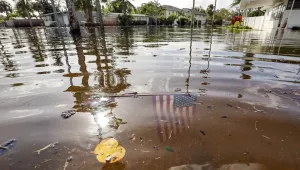
Executive Summary
Migration trends in the Americas recently have undergone a significant transformation. During the past few years, an increasing number of migrants and asylum seekers from different parts of the hemisphere—and other regions of the world, including Eastern Europe, Southeast Asia and the African continent—have been undertaking a very long and arduous journey to the United States. Migrant mobility has been facilitated by sophisticated smuggling networks (that operate often in tandem with other criminal organizations) and corrupt officials.
The journey to the United States of economic migrants and asylum seekers from developing countries or countries at war is invariably perilous. At the same time, current migration trends
and organized mass irregular migrations pose substantial homeland security risks. This paper proposes the dismantling of migrant smuggling networks through intelligence and targeted actions as important elements both of border security and enforcement and humanitarian migration management. In addition to these policies, the U.S. government should collaborate closely with other governments to cooperatively redesign asylum systems.
This paper focuses on one dimension of the irregular migration issue. There are numerous other relevant influences related to the “push” and “pull” factors that uproot individuals from one country and propel them toward another. Dismantling human smuggling organizations and networks, therefore, is a necessary but not sufficient condition for managing irregular migration more satisfactorily. It is crucial that the U.S. government work with other governments and multilateral organizations in the long term to address the root causes of irregular migration and undocumented immigration, as it conducts the more tactical enforcement operations of the type proposed in this paper.
Correa-Cabrera, Guadalupe. “Dismantling Migrant Smuggling Networks in the Americas.” Belfer Center for Science and International Affairs, Harvard Kennedy School, June 27, 2022



